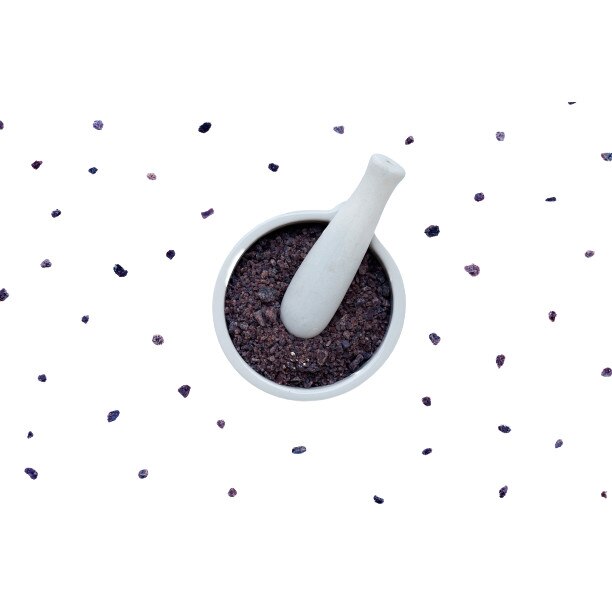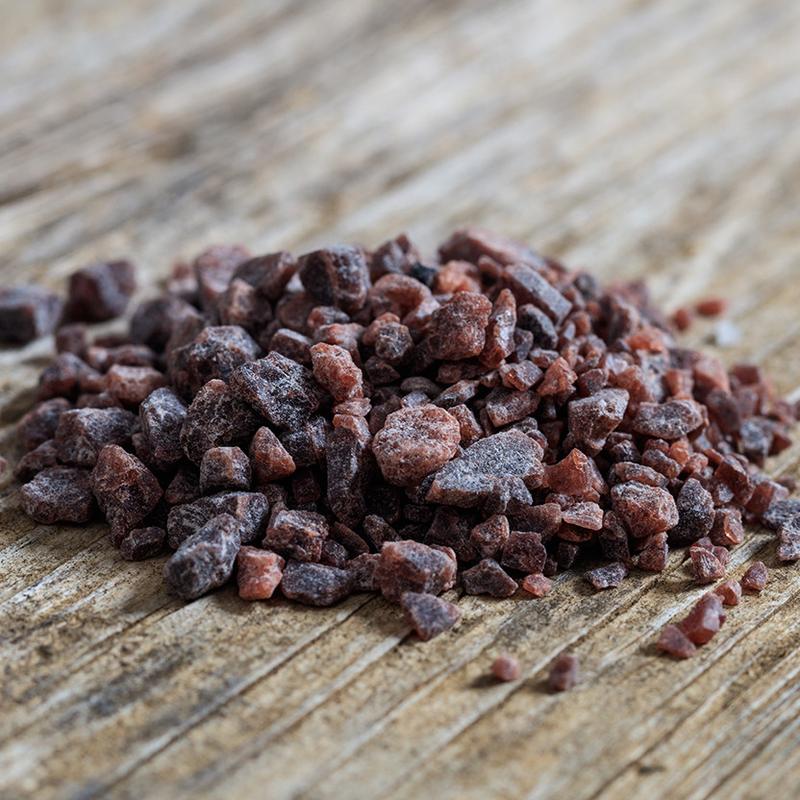Himalayan black salt, also known as kala namak or sulemani namak, is a unique volcanic rock salt prized for its distinctive sulfurous aroma and rich mineral content. Unlike regular table salt, black salt undergoes a natural processing method that gives it a deep, smoky flavor and a reddish-black hue when whole, turning pinkish-gray when ground.
This ancient salt has been used for centuries in Ayurveda and South Asian cuisine, offering both culinary and therapeutic benefits. However, like any natural remedy, it’s important to understand both its advantages and potential drawbacks.
Health Benefits of Himalayan Black Salt
1. Aids Digestion
Black salt is known for its digestive properties. It stimulates bile production in the liver, helping to break down fats and improve nutrient absorption. It may also relieve bloating, gas, and indigestion due to its mild laxative effect.
2. Rich in Essential Minerals
Unlike refined table salt, Himalayan black salt contains trace minerals like iron, potassium, magnesium, and sulfur. These minerals support electrolyte balance, muscle function, and overall metabolic health.
3. May Help with Acid Reflux and Heartburn
Due to its alkaline nature, black salt can help neutralize stomach acid, reducing symptoms of acid reflux and heartburn. Some people mix a pinch of black salt with water or lemon juice for relief.
4. Supports Respiratory Health
In Ayurveda, black salt is used to alleviate respiratory conditions like asthma and sinus congestion. Its anti-inflammatory properties may help clear mucus and improve breathing.
5. Promotes Healthy Skin and Hair
The sulfur content in black salt can benefit skin health by reducing acne and inflammation. Some people use it in face scrubs or hair masks to promote scalp health and prevent dandruff.
6. May Help Regulate Blood Pressure
While excessive salt intake can raise blood pressure, black salt contains lower sodium levels compared to table salt. Some studies suggest it may help maintain healthy blood pressure when used in moderation.
Potential Contraindications and Side Effects
Despite its benefits, Himalayan black salt may not be suitable for everyone. Here are some precautions to consider:
1. High Sulfur Content May Cause Discomfort
The sulfur compounds in black salt give it a strong, egg-like smell and taste, which some people find unpleasant. Excessive consumption may lead to nausea or stomach upset.
2. Not Suitable for Low-Sodium Diets
While it contains less sodium than table salt, black salt is still a source of sodium. People with hypertension, kidney disease, or those on a sodium-restricted diet should use it cautiously.
3. May Interact with Certain Medications
If you take diuretics, blood pressure medications, or lithium, consult a doctor before increasing black salt intake, as it may affect electrolyte balance.
4. Not Recommended for Pregnant Women in Excess
Ayurveda suggests moderation with black salt during pregnancy, as excessive amounts may lead to fluid retention or digestive discomfort.
How to Use Himalayan Black Salt
- Culinary Uses: Adds a tangy, umami flavor to chaats, chutneys, salads, and vegan dishes (it mimics the taste of eggs in tofu scrambles).
- Therapeutic Uses: A pinch dissolved in warm water can aid digestion or soothe a sore throat.
- Topical Applications: Mixed with oils or water for exfoliating scrubs or hair rinses.

Himalayan black salt is a nutrient-rich alternative to regular salt with numerous health benefits, particularly for digestion and mineral balance. However, moderation is key, especially for those with specific health conditions.
Have you tried Himalayan black salt?
Share your experiences in the comments below!

